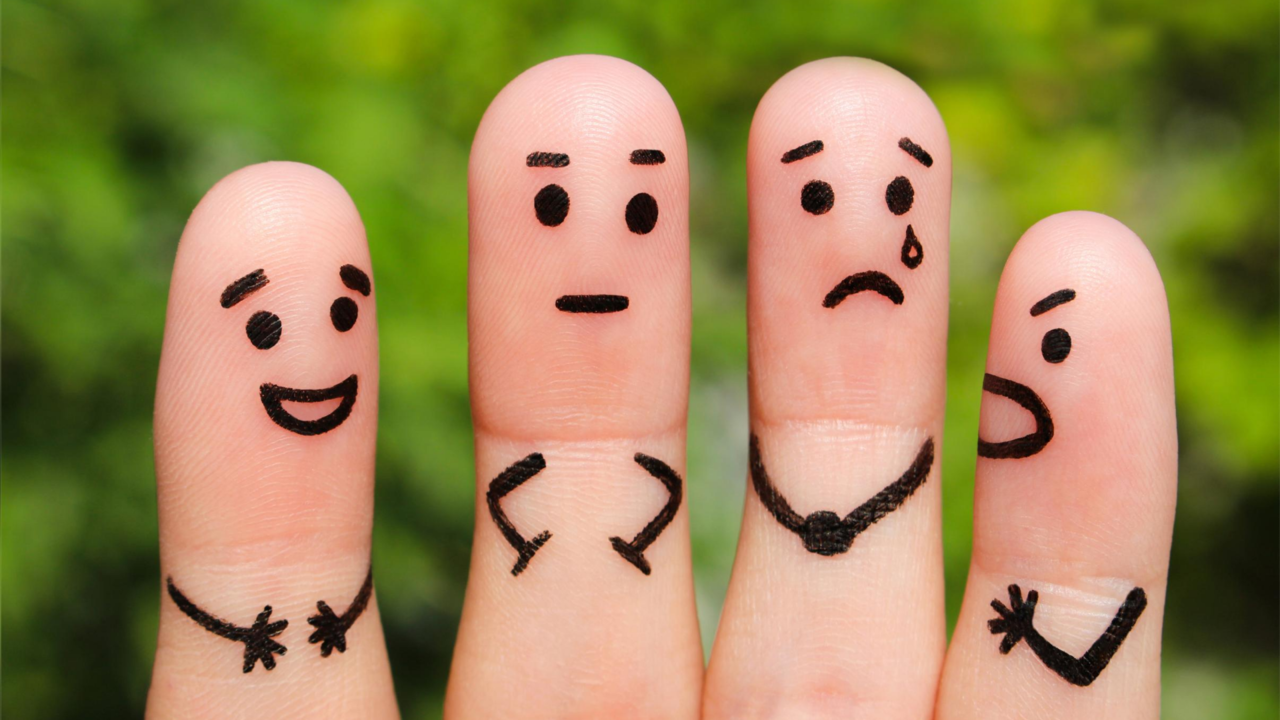Discover How Your Emotions Directly Affect Your Body

Have you ever known someone in your life to get diagnosed with cancer only to find out that they had a lot of long standing repression, resentment, anger, and a general unsettled emotional state? Or how about all the people you know that experience extremely visceral panic attacks with everything from a racing heart to fighting for their next breath - all in the name of anxiety.
Being an emotionally sensitive person myself, as well as having the opportunity to explore other peoples emotional realties and struggles over the last couple of decades in the clinic and as a friend, I can certainly validate that emotions have a direct impact on the health of our mind, body and spirit and therefore our general wellbeing.
Stay with me and I’ll go over the different emotions and how they affect our internal organs, some more directly than others.
Obviously we all have feelings and emotions, that are unavoidable, and that’s what makes us human. Feelings are normal and necessary and add connection to relationships. When they are excessive, prolonged, suppressed or unrecognized to the point where feelings end up turning into moods and a general state of being, and take over our life in a destructive or inappropriate way, our psyche and body are affected in a pathological sense. In Chinese medicine, emotional stress and disturbance is one of the internal causes of dis-ease and injures our internal organs by disrupting our Qi and blood flow. Conversely, the state and health of our internal organs also directly affects our emotional state.
In Chinese medicine, emotional stress and disturbance is one of the internal causes of dis-ease and injures our internal organs by disrupting our Qi and blood flow. Conversely, the state and health of our internal organs also directly affects our emotional state.
For example, if someone is perpetually frustrated and irritable, this can lead to stagnation and inflammation in the body. On the contrary, if someone is inactive and feeling stuck and stagnated, eating a lot of fried, greasy, processed, and sweet foods, this may be the result of a person becoming angry and easily frustrated.
Let’s dive in and remember, the emotions below, when in excess for an extended period of time, directly affect and injure the corresponding organs.
- The lungs and large intestine are weakened by sadness, sorrow, and grief.

- Sadness, sorrow, and grief depletes and weakens our Qi and can present in symptoms such as fatigue, shortness of breath, pale complexion, weepy, feeling of oppression in chest. If our Qi is depleted for long enough, our blood can also become deficient resulting in symptoms such as anemia, poor circulation, amenorrhea (absence of menstruation). Left long enough, Qi deficiency can lead to a feeling of confusion, depression, lack of a sense of direction, and an inability to make plans for the future.
- The spleen, stomach and pancreas are weakened by worry, anxiety, pensiveness, and rumination.

- Worry and anxiety are two of the most common emotional causes of dis-ease in our society.
- Worry, anxiety, pensiveness, and rumination knots and stagnates our Qi, by inhibiting it from moving freely in our body. We’re all familiar with the ‘knot’ we get in our stomach when we’re worried or anxious. When these emotions affect the spleen, stomach and pancreas we can experience symptoms such as poor appetite, abdominal pain and distention, bloating, tiredness, and pale complexion. Hemorrhoids, miscarriage, and prolapse can be the result of a very tired and weak spleen.
- The heart and small intestine are weakened by excessive joy, excitement and craving, mania, possessiveness, obsessive love and jealousy.

- However pleasurable and dramatic, these emotions scatter and quicken our Qi and over-stimulate the mind often manifesting in symptoms like over-excitability, insomnia, restlessness, uncomfortable sensation in the chest, talking incessantly, and palpitations.
- All emotions indirectly affect the heart because the heart, in Chinese medicine, is seen as responsible for our consciousness and feels the effects of being emotionally unsettled.
- The kidney and urinary bladder are weakened by fear and shock.

- Fear and shock scatter and descend our Qi resulting in symptoms like bedwetting, incontinence, frequent and urgent urination, waking to urine at night. Other common symptoms of kidney deficiency can be night sweats, dry mouth, flushed face, low back pain, achy knees, low pitch tinnitus (ringing in the ears).
- The liver and gall bladder are weakened by anger, irritation, resentment, frustration, bitterness, rage, and hatred.
- When any of these emotions are bottled up and unexpressed it will cause our Qi to stagnate manifesting symptoms such as intercostal rib pain, depression, sighing, gas, a feeling of something in the throat that can’t be cleared or swallowed.
- When these emotions are expressed, our Qi tends to rise creating symptoms like headaches/migraines, high pitch tinnitus, red blotches on the front part of neck, red face, thirst.
 In a nutshell, while feelings and emotions are what make us human and allow us the opportunity to enjoy an abundant quality of life, they can also create our demise. For this reason I think it is so important to have a regular gratitude and meditation practice to help one create equanimity with our emotions and be able to observe them before reacting unreasonably and uncontrollably. Equanimity is a life long practice and doesn’t happen overnight. A numbness and lack of emotion can equally bring about internal disharmony.
In a nutshell, while feelings and emotions are what make us human and allow us the opportunity to enjoy an abundant quality of life, they can also create our demise. For this reason I think it is so important to have a regular gratitude and meditation practice to help one create equanimity with our emotions and be able to observe them before reacting unreasonably and uncontrollably. Equanimity is a life long practice and doesn’t happen overnight. A numbness and lack of emotion can equally bring about internal disharmony.
So what do we do from here now that we’ve been validated and see that yes in fact our emotional state has an enormous impact on our mind, body and spirit? I say start with having a honest look at your lifestyle… Do you eat in regular intervals or often skip meals and have long periods of time between eating? Do you eat enough or maybe too much? Are you always eating on the fly and hurrying to get from one place to another? These are important questions to consider as these habits create blood sugar irregularities, which is a major contributor to mood swings. Do you exercise regularly to help move your energy? What do you do for your mental well-being? Like I said above, find a meditation technique that you align with and begin focusing your mind regularly. Talking with a psychologist that you connect with can be invaluable. Acupuncture is also a fantastic modality that recognizes and addresses all aspects of health, our physiology, our emotions, our genetics and best of all our unique constitution, which is different than everyone else :-)
I say start with having a honest look at your lifestyle… Do you eat in regular intervals or often skip meals and have long periods of time between eating? Do you eat enough or maybe too much? Are you always eating on the fly and hurrying to get from one place to another? These are important questions to consider as these habits create blood sugar irregularities, which is a major contributor to mood swings. Do you exercise regularly to help move your energy? What do you do for your mental well-being? Like I said above, find a meditation technique that you align with and begin focusing your mind regularly. Talking with a psychologist that you connect with can be invaluable. Acupuncture is also a fantastic modality that recognizes and addresses all aspects of health, our physiology, our emotions, our genetics and best of all our unique constitution, which is different than everyone else :-)
Take one action step today towards supporting your mental health. Make that call. Book that appointment. Wake up 10 minutes earlier to meditate daily. Carve out 20 minutes for yourself daily to get a sweat on. Call a friend and be honest about what’s going on. Start with something! Lastly, please share this with someone you know and care about, post it to your facebook, email it, text it, just please share it. From experience I know that often people need to feel validated that their emotions are legit and often a major contributing cause of their illness or dis-ease. Generally, it is often not until this is affirmed that they start taking steps to making real change.
Lastly, please share this with someone you know and care about, post it to your facebook, email it, text it, just please share it. From experience I know that often people need to feel validated that their emotions are legit and often a major contributing cause of their illness or dis-ease. Generally, it is often not until this is affirmed that they start taking steps to making real change.
Thank you from the bottom of my heart!
Xo


